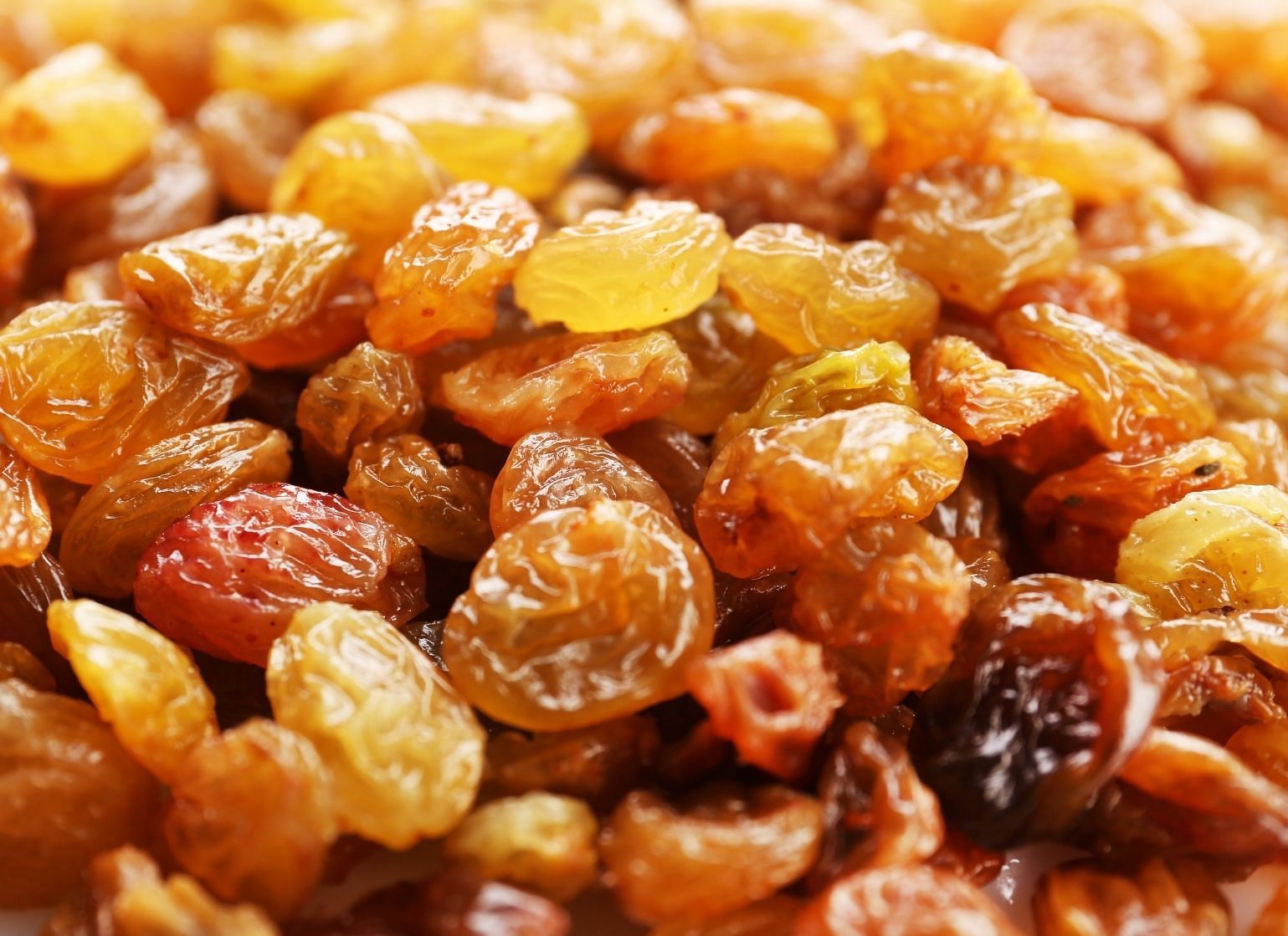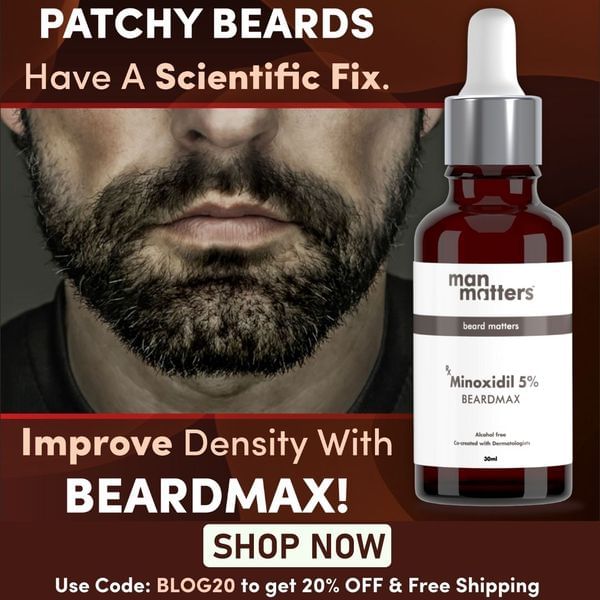Decoding Signs You Can't Grow a Beard: Expert Guide for Men
A beard is considered a sign of masculinity. Are you trying to grow a beard but facing challenges? Here discover the signs why can’t you grow a beard.

Beards are becoming increasingly popular due to the growing number of male influencers and celebrities who flaunt their beard. Men with beards are usually perceived as more masculine these days. In this comprehensive guide, we will look at why men can’t grow a beard, the signs of low beard growth, including low testosterone, and some beard growth tips.

Why Can't I Grow a Beard?
Few men may be unable to grow a beard for various reasons, including low testosterone. Discover the signs why you are not able to grow a beard or the causes of slow beard growth:
1) Genetics:
One of the most important factors in beard growth is genetics. Like other physical traits, such as eye color and height, your genes largely determine beard growth. If your father or other male relatives have a patchy beard or are unable to grow a beard at all, it is likely that you may also have difficulty growing a beard.
2) Hormonal Imbalances:
While testosterone plays a key role in beard growth, other hormones, such as DHT, also affect the growth and thickness of facial hair. Hormonal imbalances can lead to low testosterone, which can occur for various reasons, including medical conditions, medications, and lifestyle factors.
3) Age:
Beard growth can also be affected by age. Most men do not begin to see significant facial hair growth until puberty, which can occur anywhere from ages 9-14. As men age, their levels of testosterone may also decrease. Low testosterone affects beard growth.
4) Nutritional Deficiencies:
Adequate nutrition is essential for healthy hair growth, including beard growth. A diet lacking essential vitamins and minerals, such as biotin, vitamin D, and zinc, is also one of the leading causes of slow beard growth.
5) Skin Conditions:
Certain skin conditions, such as psoriasis and eczema, can inhibit beard growth by blocking hair follicles and preventing new hair from growing.
6) Stress:
High levels of stress are also one of the prominent causes of slow beard growth. Stress hormones can disrupt the normal hair growth cycle, causing hair to fall out prematurely or inhibiting new hair growth.
7) Smoking:
Smoking is known to negatively impact overall health but can also affect beard growth. Smoking can reduce blood flow to the face, limiting the supply of nutrients to hair follicles and inhibiting hair growth.
Also Read: 10 Tips and Tricks on How to Grow Beard Faster for Teenager

It’s Not All About Low Testosterone
It is a common misconception that low testosterone is the reason for insufficient beard growth, or testosterone is the sole determining factor in beard growth. While testosterone does play a role in hair growth, it is not the only factor. Factors such as genetics, nutrition, and overall health also contribute to beard growth. Let's take a closer look at the following factors:
Nutrition:
Eating a healthy and balanced diet is important for overall health and can impact beard growth. A diet high in protein, vitamins, and minerals can encourage healthy hair growth. Foods such as lean meats, fish, nuts, fruits, and vegetables can provide essential nutrients that support beard growth.
Overall Health:
Your overall health can also impact beard growth. High levels of stress, lack of sleep, and poor lifestyle choices such as smoking and excessive alcohol consumption contribute to the causes of slow beard growth. Taking care of your health by managing stress, getting enough sleep, and making healthy choices can promote healthy beard growth.

Hormonal Imbalances:
While testosterone is not the only hormone involved in beard growth, hormonal imbalances can impact beard growth. Conditions such as hypothyroidism and low testosterone levels can cause hair loss or slow down hair growth. If you suspect that you may have a hormonal imbalance, it is important to talk to your doctor.
Dihydrotestosterone (DHT):
Dihydrotestosterone (DHT), a testosterone derivative, is responsible for hair growth in some body parts, including the beard.
Men with low levels of DHT may struggle to grow a beard, even if they have high testosterone levels.
12 Clear Signs You Can’t Grow a Beard
While some men can easily grow a thick, full beard, others struggle to grow any facial hair. If you are having trouble growing a beard, let's know the causes of slow beard growth. Here are 12 clear signs you can’t grow a beard:
1) Patchy Growth:
If your beard grows in patches rather than evenly across your face, it may be a sign that you are unable to grow a full beard.

2) Slow Growth:
If your facial hair grows very slowly or doesn't grow at all, this could indicate that you will struggle to grow a beard.
3) Sparse Hair:
If your facial hair is sparse, thin, or fine, it may not be able to grow into a full beard.
4) Inconsistent Growth:
If your facial hair grows in different directions or at different rates, achieving a full face of even beard may be difficult.
5) No Growth on Cheeks or Jawline:
If you are unable to grow hair on your cheeks or jawline, it may be difficult to achieve a full beard.
6) No Mustache Growth:
If you are unable to grow hair above your upper lip, it may be difficult to achieve a full beard.
7) No Neck Growth:
If you are unable to grow hair on your neck, it may be difficult to achieve a full beard.
8) Bald Spots:
If you have bald spots in your beard that do not fill in over time, it may be a sign that you are unable to grow a full beard.
9) Thin Sideburns:
If your sideburns are thin or sparse, it may be a sign that you cannot grow a full beard.
10) Light-Colored Hair:
If your facial hair is very light in color or barely visible, it may be difficult to achieve a full beard.
11) Family History:
If no men in your family have been able to grow a full beard, it may be a sign that beard growth is not in your genetic makeup.
12) Age:
If you are over 30 and still unable to grow a full beard, it may be a sign that your beard growth has reached its maximum potential.
Also Read: Castor Oil for Beard Growth and Thickness: Does It Actually Work?
Beard Growth Tips
A well-groomed beard not only enhances your physical appearance but also increases confidence and self-esteem. Looking to grow your beard? Here get hold of a few beard growth tips:

- Maintain a healthy diet: Eating a balanced diet rich in vitamins and minerals can promote healthy hair growth, including beard growth.
- Exercise regularly: Regular exercise can help boost testosterone levels, which can help promote beard growth.
- Get enough sleep: Lack of sleep can lead to hormonal imbalances that can negatively impact beard growth.
- Reduce stress: Stress can also impact hormonal balance, so finding ways to manage stress is essential.
- Take care of your skin: Keeping your skin healthy and moisturized can promote healthy hair growth.
Also Read: Ultimate Guide to Beard Growth Tips: Achieve Your Beard Goals!
What Product to Use for Faster Beard Growth?
There is no magic product that can instantly help you grow a beard, but certain products can help promote healthy hair growth. Here are a few products to take into account for

1) Beard oil: Beard oil helps moisturize the skin underneath the beard, promoting healthy hair growth.
2) Beard balm: Beard balm helps condition and style the beard, making it look fuller and healthier.
3) Minoxidil: Minoxidil is a medication that is used to treat hair loss. The use of minoxidil to promote beard growth has been successful for some men.
Also Read: Minoxidil for Beard Growth & Facial Hair 101 Guide - Man Matters
What are the First Signs of Beard Growth?
The first signs of beard growth vary from person to person, but here are a few common signs to look out for:
1) You may notice fine, light-colored hairs on your face.
2) Your skin may feel itchy or irritated as the hair starts to grow.
3) You may see small patches of hair starting to grow on your face.
4) Your facial hair may start to feel coarse and stiff as it grows.
5) You may start to see some thickness or density in certain areas of your beard.
Also Read: 10 Proven Ways to Fix Your Patchy Beard!
Beard Growth Myths
There are many myths surrounding beard growth that can be misleading and confusing. Let's debunk a few of them:
Myth #1: Shaving regularly will make your beard grow faster and thicker.
Truth: Shaving does not affect the rate or thickness of beard growth. It is a common misconception that shaving stimulates hair growth, but this is untrue. Hair growth is determined by genetics, hormones, and overall health, not shaving.
Myth #2: Applying more beard oil will make your beard grow faster.
Truth: While beard oil can promote healthy hair growth, applying more than necessary will not make your beard grow faster. Overuse of beard oil can actually clog hair follicles and inhibit hair growth. It is important to use the recommended amount of beard oil and to choose a high-quality, all-natural product.
Myth #3: Only men with high testosterone levels can grow a beard.
Truth: While testosterone plays a role in beard growth, it is not the only factor involved. Genetics, overall health, and other hormones also affect beard growth. Some men, despite no low testosterone levels, may still struggle to grow a beard if they have genetic predispositions or other underlying health issues.
Myth #4: Trimming your beard will slow down hair growth.
Truth: Trimming your beard does not affect the rate or thickness of hair growth. In fact, regular trimming can promote healthy hair growth by removing split ends and promoting a fuller, more even beard.
Myth #5: You can stimulate hair growth by rubbing your beard with a towel.
Truth: Rubbing your beard with a towel or other object will not stimulate hair growth. In fact, this can cause damage to hair follicles and inhibit hair growth. Handling your beard gently and avoiding any rough or aggressive actions that can damage hair follicles is important.
The Bottom Line
Beard growth is not always easy, and many men struggle with it. If you have any of the signs listed above that indicate you may not be able to grow a beard, don't worry. There are still things you can do to promote healthy hair growth, and many products available can help, despite the fact that you have low testosterone. Remember to care for your skin, eat a healthy diet, and manage stress to promote healthy beard growth.

